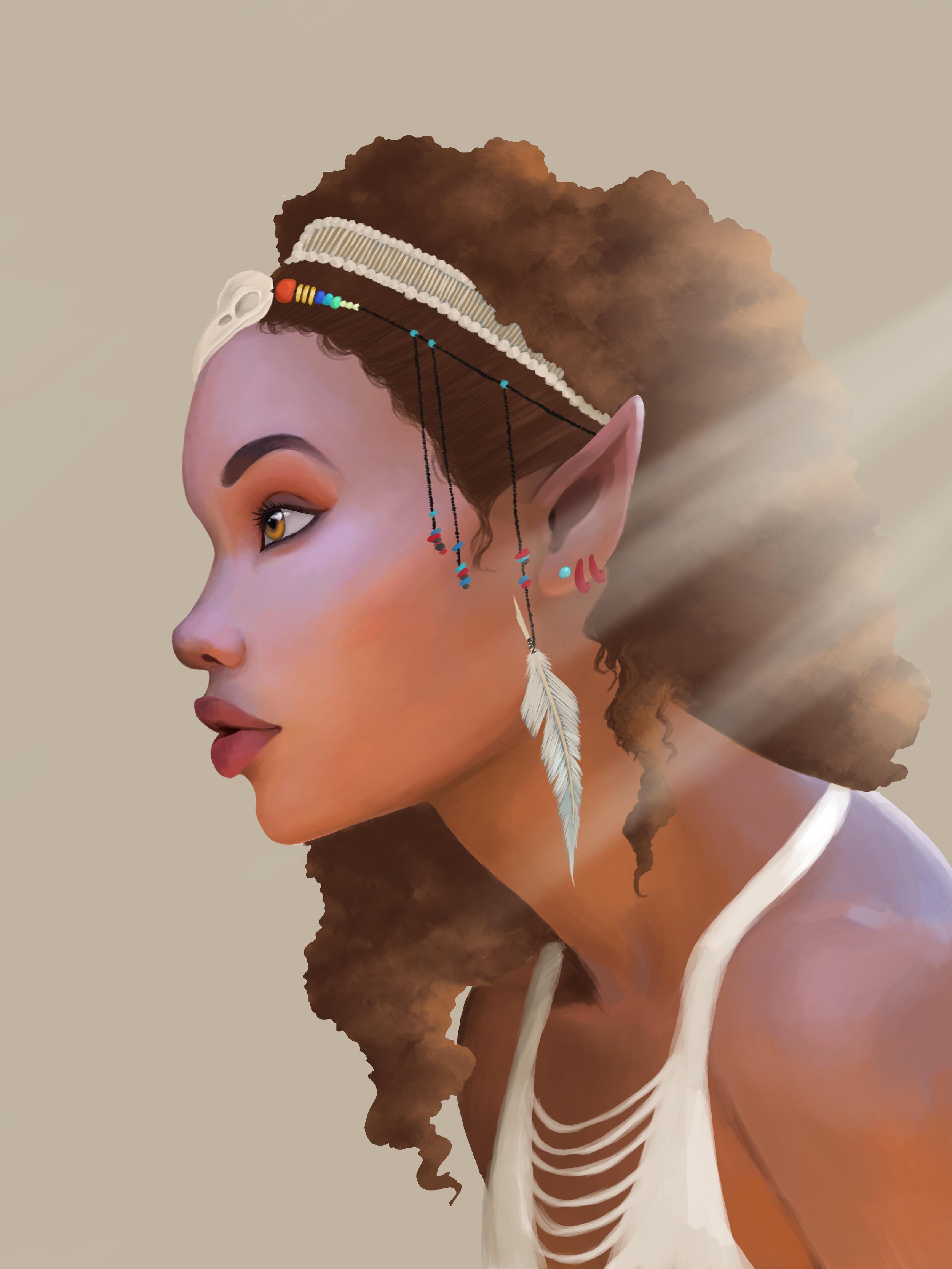Blog
Author’s Notes: The Garden of Reflection
I wrote this story in response to a Reedsy prompt concerning a character that wants to disappear and does.
I wanted to draw from the idea when a person contracts a chronic disease or a terminal illness, how they might feel like a burden or inconvenience to others - how they might want to disappear.
My first thought was to make a ghost story with my bard character, Joliver Barleywood. As I started outlining, I didn’t want to trivialize the subject and felt I needed to go deeper. Jayleigh Warmhollow was a better fit; she’s my character for more complex and emotional themes.
I thought the gorgon slant was a perfect fit. It’s difficult to imagine a life where you couldn’t interact with people you love without the risk of “infecting” them.
The entry into the story takes the reader into an aftermath. The villagers tried to burn their town to destroy Uriah. The mood is deliberately bleak and sullen, and when we meet Jayleigh, she’s prepared for combat, to do whatever is necessary to restore a balance to nature.
Mythology isn’t kind to gorgons. We usually encounter them when they’re grown up, resentful, angry, and evil. They’re usually a protagonist who ends up losing their snake-ridden head. The reader’s rooting for it, of course, because we don’t want to see our brave protagonist turned to stone. That’s not how I wanted this story to end.
In this story, I wanted my reader to see Uriah as innocent: she was the victim of an unfortunate circumstance, a disease. She didn’t deserve to get her head stuffed in a bag. Instead, how can we treat someone like this with dignity?
Jayleigh wants to bargain with the gorgon and find an alternative to killing her. Like anyone who survives a chronic illness would tell you, living is harder than dying, so maybe, for some, death is a preferred option. Most in our society don’t have the option to die gracefully and on their own terms; ten states plus the DOC have “right-to-die” laws. In forty other states, the ideal value of life trumps the prolonged suffering of an individual, especially when it’d be more merciful to simply end it. When I have Jayleigh spin around and confront the townsfolk in this story, I’m really yelling at “people” who don’t have any say in Uriah’s suffering.
In the story, death always remained an option in the form of Jayleigh’s sickle. Scythes and sickles have a direct association with death, but it’s also a reference to a D&D constraint where druids can use limited forms of bladed weapons. A sickle is one.
That said, I wanted Uriah to have more options than death. Isolation is a common theme with gorgons given their curse, but I think it’s also something that the chronically ill experience. Some people withdraw from their social connections either through choice or circumstance. I felt that experience would imbitter Uriah and make her resentful; a life of loneliness was no life at all. I made a reference to Uriah as being a “baby gorgon”, like, she’s “young” and not set in her ways. Her mind hasn’t “eroded” into madness and she was still pliable. I think this is also true for people suffering from illness. Instilling hope is important to a treatment plan. Hope, in this case, was a life shared with other people, a community, that could accept her for what she was.
The Galeb Duhr is a race in D&D with a long history in the game. They’re neutral creatures and 5e even points out that they’re disposed to working with druids. Given their immunity to petrification and thousands of years of lifespan, I felt they’d make a suitable “family of choice” for a gorgon if she chose it. They offered a way out that we don’t see in mythology.
With Jayleigh’s mask, I deviated from D&D’s rules but I imagined it as something like a True Seeing spell woven into an ordinary mask. It was a convenient tool for both Jayleigh and Uriah.
I think the underpinning message is that all chronically ill have their own agency. As powerless as they might feel, they get to choose for themselves what they want out of the life they’re handed.
Who is Jayleigh Warmhollow?
Character Description
Jayleigh (Jay-LEE), a Halfling of the Parishes, has a talent.
She can hear the songs sung by the land and plants; feel their tenors and vibrations; she communicates with nature through song.
Jayleigh is a young lightfoot Halfling, just twenty-two years old. She was orphaned at an early age due to a fire that took her parents.
She’s a Druid and, following her parent’s death, spent a great deal of time in the Aevalorn Wilds with another halfling character, a ranger named Kindle Muckwalker. Kindle taught her the ways of the Wilds and how to survive.
Stories
Jayleigh’s themes concern nature, religion, and superstition. Besides Kindle, I’ve plans to write a story that includes a collaboration between Jayleigh and Skyer Dannon.
When you’re coached on writing, people will tell you to read what you write aloud to hear its cadence. This character is my answer to that problem. Jayleigh’s adventures are about poetry, rhyme, rhythm, and the sounds of nature. When I write these stories, I’m really trying to put my creative descriptions into overdrive; I try to write poems and songs to go along with the narrative.
She first appeared in the short story The Grotesque of Silvanus.



